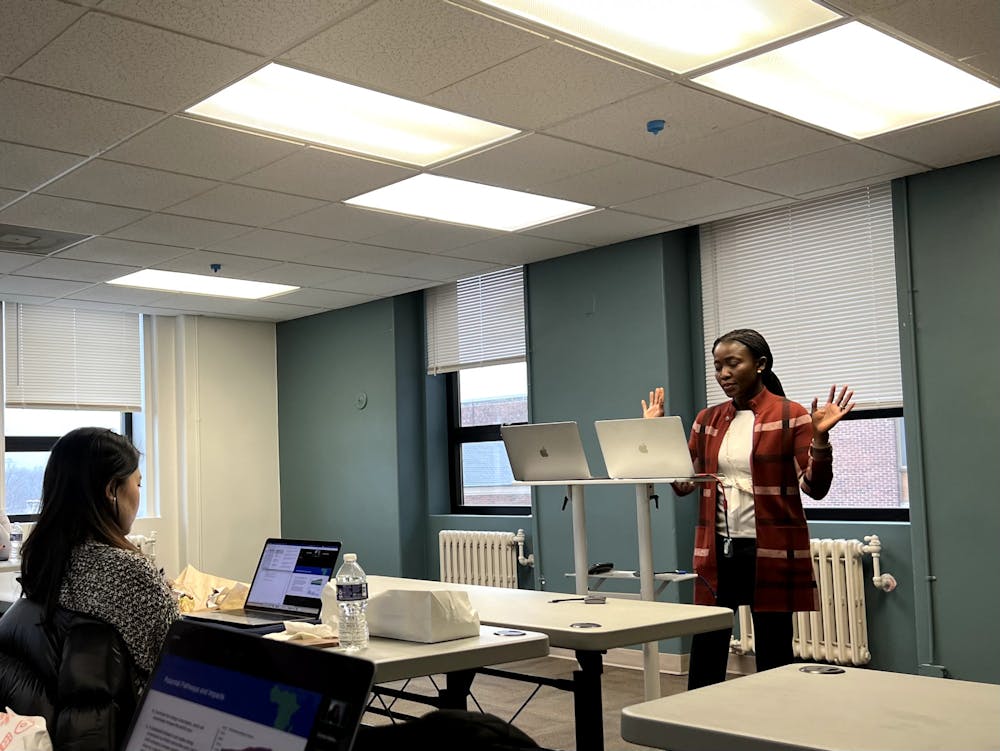The Economic Policy Issues Colloquium (EPIC) hosted a discussion titled “Africa’s Energy Transition — Tensions, Viewpoints and Realities” on March 3. The event featured Lily Odarno, the director of Clean Air Task Force’s Energy and Climate Innovation Program, Africa.
Having studied and worked in Africa, North America and Europe, Odarno is interested in the role of local contexts in developing energy systems. She has published on topics of the intersection of energy and development in Africa, and she serves on the editorial board of Climate Policy.
In an interview with The News-Letter, Hellen Seshie-Nasser, lecturer in the Department of Economics, explained that the department decided to invite Odarno for a talk after noticing a surge in student interest in energy transitions.
Seshie-Nasser also highlighted that news and media coverage on energy-related topics tend to focus on the Western world, resulting in a lack of media representation on African countries.
“If you listen to the news and the media generally, there's so much talk about how the Western world and the developed countries are doing [in regard to energy transition],” she said. “I realized that we don't have much in the media about what's going on in Africa; that was when I decided that Odarno should be the best person to give us a talk on that.”
At the talk, Odarno emphasized the importance of appreciating the nuances of the climate crisis.
“There's a lot going on with climate change. There are a lot of actions around the world,” she said. “Sometimes, we get lost in the activities and forget that there are nuances to how we think about the problem and how we come across addressing them.”
According to Odarno, it is not enough to talk about transitions in addressing the climate crisis. In order to advance, policymakers need to talk about ways to improve utilities and focus on necessary innovation and technologies.
She then offered an overview of energy infrastructure in Africa. She highlighted the shift in geopolitics as Africa developed a new alliance with the Middle East in energy infrastructure investment, contrary to its previous cooperation with Europe, the U.S. and China.
She stressed the need to recognize the geopolitical reality in addressing energy transition.
“If we are serious about the energy transition, we need to become more realistic about what's happening with global geopolitics,” she said. “[We need to] acknowledge that it's shifting and think about how we [can] use those alliances to help Africa build a foundation.”
In an interview with The News-Letter, sophomore Divine Madubike, who attended the discussion, shared his interest in the African economy and energy.
“I came to this event to learn more about [the] African economy and how it connects to our world, especially when we're looking at energy,” he said.
Senior lecturer in the Department of Economics Barbara Morgan added that the EPIC is part of an initiative to increase diversity in the Department of Economics in an interview with The News-Letter.
“[The EPIC] started for the very reason that, when you say the word economist, [an average person will likely] think of a white guy on Wall Street. This stereotype often keeps away from economics the major people who don't look like the white guy on Wall Street,” she said. “[We want to focus on] a diversity of topics as well so that we're not always talking about finance and macro.”
According to Morgan, the undergraduate body has become more diverse since the launch of the EPIC.
Odarno described that her work aims to connect technological developments and innovations with the specific needs of people in Africa.
“Technology itself has to be localized for it to be put in use in a way that’s helpful,” she said. “We are specifically looking at how we make those connections between the technological research and how it's contextualized within the local context [of African countries].”
Ahmad Tabbara, a freshman on the committee for the EPIC, shared that the talk provided him with the opportunity to explore a case study of the environment away from a Western-centric mindset.
“Sometimes, as economists who are based in the West, we have these macro views, macro visions and objectives, and we just impose them on people. [These views] are not necessarily compatible with Africa's current situation,” he said. “Learning to take things case-by-case and not take this macro approach is what we need to do.”
To close the talk, Odarno emphasized the importance of recognizing the complexity of the climate crisis.
“[The climate crisis] is not just a matter of greenhouse gas emissions. It’s a matter of thinking about the complexity of developments of energy, poverty, climate vulnerability and how we [connect] all of those things together,” she said.





